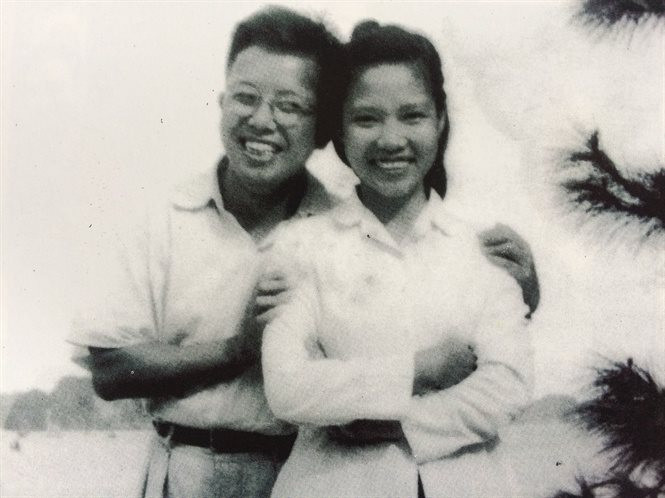
Writer Nguyet Tu was born in 1925, her real name is Nguyen Nguyet Tue, she is the first child of the famous painter Nguyen Phan Chanh - who is famous all over the world for his silk painting "Playing O An Quan". As the wife of a great politician, the late Chairman of the National Assembly - Chairman of the Front - General Le Quang Dao, she still has her own career, working as a journalist and writer, was a reporter for Nhan Dan newspaper, Vietnam Women's newspaper and Director of Women's Publishing House.
In her old age, she still kept the habit of reading newspapers and books every day and writing articles non-stop. She always wrote with special pride about the two great men in her life: her father - famous painter Nguyen Phan Chanh and her husband - late President Le Quang Dao.
I still remember the phone calls she made to me, the letters she sent via gmail when she was old. That was when there were new articles, she wanted to send them to me to see. And every time I called to ask her to write an article, she was ready to write and asked for the help of her secretary to forward the article. She loved her husband and understood him, in the articles about the late President Le Quang Dao, she called him a person who loved the people and loved the people. She always wanted to write about him during the days of implementing and defending the Law on the Front before the National Assembly . The late-night meetings of the Party delegation of the Front. The nights he stayed up all night. And then the Law on the Front was passed by the National Assembly in 1999, just a few months after President Le Quang Dao passed away.
When she was a child, she lived in Hanoi , where her father taught Fine Arts at Buoi School. However, Mr. Phan Chanh later quit teaching, left Hanoi, and brought his family back to his hometown in Ha Tinh town.
Returning to Ha Tinh, to support her family, Mrs. Phan Chanh traveled to many places to paint portraits for worshiping people in the area. The family often fell into poverty because her paintings sometimes cost her only a few potatoes. In this situation, her parents still encouraged her to go to school.
Surpassing hundreds of other candidates, she was admitted to Dong Khanh Girls' School, class of 1940 - 1944. Because she was the top student, she was awarded a scholarship for all 4 years of study and given priority in boarding school. She passed the Thanh Chung exam in 1944.
In the summer of 1942, during a field trip organized by Dong Khanh School for students in Da Lat (Lam Dong), Ms. Tu met Ms. Nguyen Khoa Dieu Hong - who was studying for the second part of the Baccalaureate at the Hue National School (later, Ms. Dieu Hong was one of the two people who read the call to arms calling on the people of Hanoi to rise up and seize power at the Opera House on August 17, 1945). And she began to be led into the path of revolutionary activities.
In the summer of 1945, Mrs. Tu returned to Ha Tinh. On the morning of August 18, 1945, a large rally broke out in Ha Tinh, with Mrs. Nguyet Tu at the head of the rally. The uprising won quickly, without bloodshed, and made Ha Tinh one of the earliest provinces to seize power in the country. The Ha Tinh Provincial Provisional Committee was established. The Women's Committee had two members: Mrs. Tran Thi Thao, a communist party member since 1930, as Secretary, and Mrs. Tu as Deputy Secretary. Her father, Mr. Nguyen Phan Chanh, was a member of the Standing Committee of the National Culture and Salvation Committee.
Ms. Nguyet Tu first met revolutionary Le Quang Dao on an autumn day in 1946 in Hanoi. At that time, he was the Secretary of the Hanoi Party Committee, and she was a female cadre from Ha Tinh province who came to Hanoi to report on her work to the Secretary of the Hanoi Party Committee. From their working relationship and frequent meetings at many events, the two gradually realized their feelings for each other.
In her memoir, she said: “In September 1948, during the farewell meal for the Central delegation led by Mr. Le Duc Tho to work in the South, our wedding also took place. The women's association went to find wild flowers to be picked for the wedding bouquet. The groom still wore his usual brown clothes. The bride wore a pigtail, a brown shirt, and black silk pants borrowed from a friend because her luggage was lost after the French colonialists' attack on the Viet Bac resistance base in late 1947. At the wedding, Mr. Dao sang the song "Pretty Bamboo" in the true style of Quan Ho from his hometown Bac Ninh, very well!”
In addition to love and husband and wife, their story also included comradeship. During the time he went to war, she was nervous and worried, but she always encouraged her husband to do his duty with peace of mind.
Even though she is over 90 years old, she is still sharp and has a sharp memory. In every story she tells, there is always the shadow of the late President Le Quang Dao during his days as a general participating in commanding the Quang Tri Front, his days as Chairman of the National Assembly and especially his years as Chairman of the Front.
When he was the President of the Central Committee of the Vietnam Fatherland Front, she had retired. There was a time when she wrote his memoirs and recorded all the work he did, his concerns about the country and the people. She said that when her work was published, Mr. Dao was even happier than the author. She once said: “Dao and I grew up together in a student environment, participated in revolutionary activities together, and both loved poetry and literature. In addition to sincere love, patience, tolerance and mutual understanding helped us have such happy days!”
It can be said that in the life of the late President Le Quang Dao, there was a great contribution from Mrs. Nguyet Tu to the sublimation of their love, with her great encouragement and sharing both from the days when he was the Political Commissar on the front line and later when he took on the positions of Chairman of the National Assembly and then Chairman of the Central Committee of the Vietnam Fatherland Front. Having been at the Front for many years, the cadres at the Central Front agency were familiar with the charm and sensitivity of "Miss Tu" and "Mrs. Tu". As the wife of "Mr. Dao" as everyone called her, she was an extremely intimate and close person.
It must be said that after 28 years of joining the army, since the Border Campaign, the longest time Mr. Dao worked was at the Fatherland Front: 17 years. After the 6th Party Congress (1986), Mr. Dao was assigned to be the Secretary of the Party Delegation of the Vietnam Fatherland Front. In mid-1987, he was elected Chairman of the 8th National Assembly but continued to hold the position of Secretary of the Party Delegation of the Front for many years. At the 4th Congress of the Vietnam Fatherland Front, Mr. Dao was elected Chairman of the Presidium of the Central Committee of the Vietnam Fatherland Front. During his time working, he devoted all his intelligence, effort and enthusiasm to the cause of great national unity. He always kept in mind: The Front is the bridge between the Party and the people.
Mr. Dao often wondered:
- It is difficult for ordinary people to speak to the National Assembly. The place where they can speak most easily and closest to them is the Fatherland Front. How can we make policies consistent with the people's aspirations?
Economic reform will not be successful without the participation and support of all classes of people. How can the opinions of the Fatherland Front be heard and implemented by the authorities? The last session of the 10th National Assembly was very tense when discussing the Law on the Front. According to Mr. Dao's proposal, it is necessary to specify the supervisory rights of the Vietnam Fatherland Front over the activities of state agencies, elected representatives, cadres and civil servants. To do that, he worked hard to get the Law on the Front passed.
Two months before his death, in a National Assembly meeting, Mr. Dao said: “... According to the Party's guidelines and viewpoints, we must promote the people's mastery role mainly through the State through organizations representing the people's power, that is, through the National Assembly, People's Councils at all levels and through other State power organizations because our State is of the people, by the people, for the people.
At the same time, promoting the people's role as masters through their socio-political organizations, the Fatherland Front and people's organizations is very important.
It is also indispensable to promote the direct mastery role of the people, especially at the grassroots level, as directed by the Party and regulated by the State.
The supervision activities of the Vietnam Fatherland Front are people's supervision, supporting the supervision, inspection and examination work of the State. Contributing to building and protecting a clean, strong, effective and efficient Socialist Republic of Vietnam. Protecting the legitimate rights and interests of the people".
(Excerpt from writer Nguyet Tu's article about the late President Le Quang Dao)
Source: https://daidoanket.vn/nha-van-nguyet-tu-phu-nhan-co-chu-tich-le-quang-dao-mot-tinh-yeu-lon-10290099.html


![[Photo] General Secretary To Lam receives Chief of the Central Office of the Lao People's Revolutionary Party](https://vphoto.vietnam.vn/thumb/1200x675/vietnam/resource/IMAGE/2025/5/30/140435f4b39d4599a3d17975dfb444c5)
![[Photo] A delegation of 100 journalists from the Vietnam Journalists Association visits the soldiers and people of Truong Sa island district.](https://vphoto.vietnam.vn/thumb/1200x675/vietnam/resource/IMAGE/2025/5/30/0984a986227d4e988177f560d2e1563e)
![[Photo] Journalists moved to tears at the Memorial Service for the soldiers who died in Gac Ma](https://vphoto.vietnam.vn/thumb/1200x675/vietnam/resource/IMAGE/2025/5/30/9454613a55c54c16bf8c0efa51883456)


![[Photo] National Conference "100 years of Vietnamese Revolutionary Press accompanying the glorious cause of the Party and the nation"](https://vphoto.vietnam.vn/thumb/1200x675/vietnam/resource/IMAGE/2025/5/30/1cf6cd5c8a934ebfa347028dcb08358c)
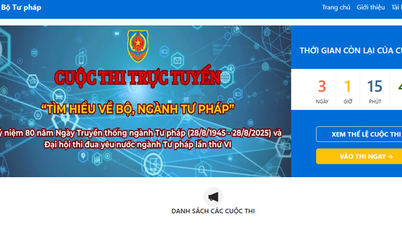

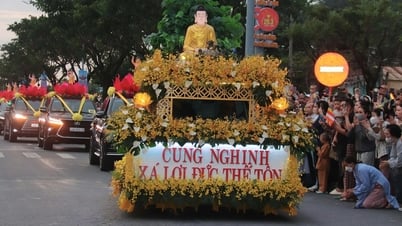

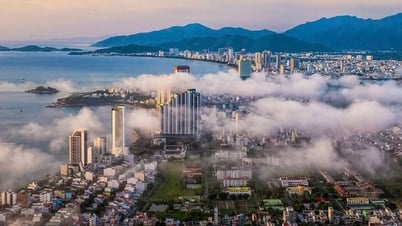

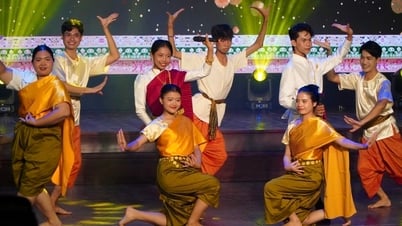
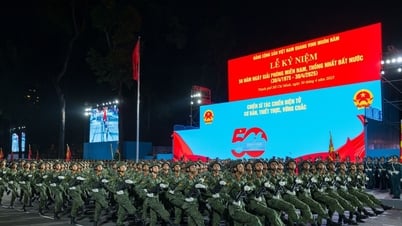

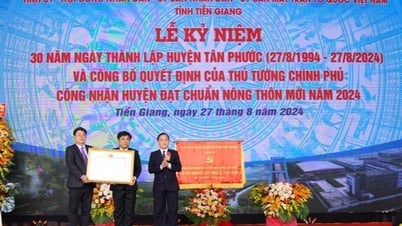






























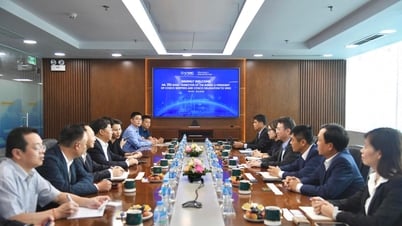














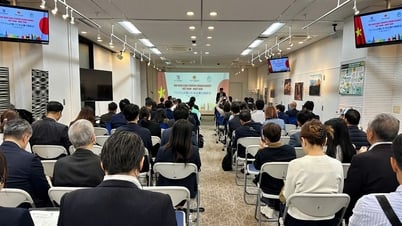



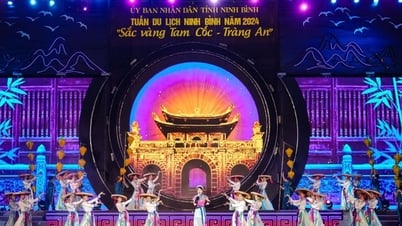
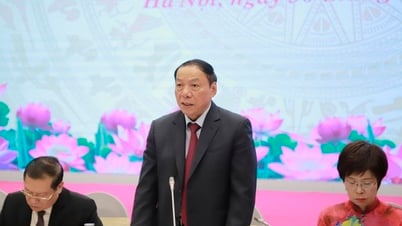

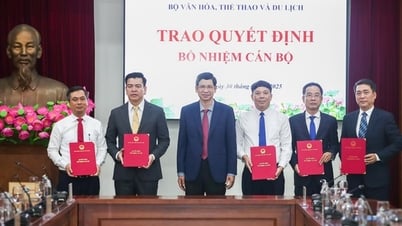
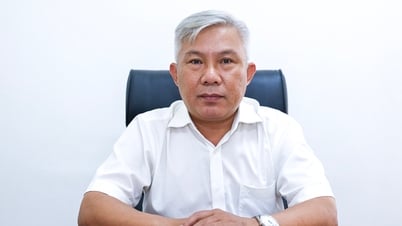

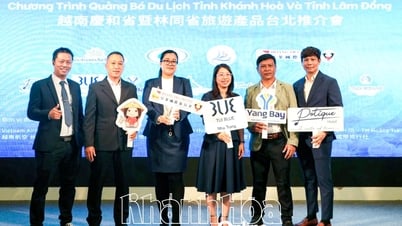

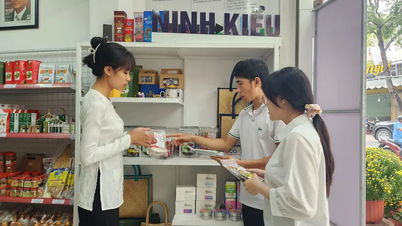

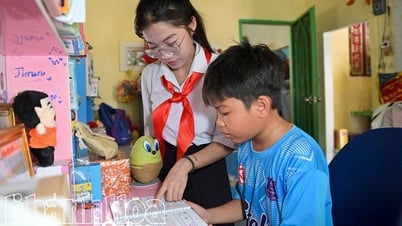
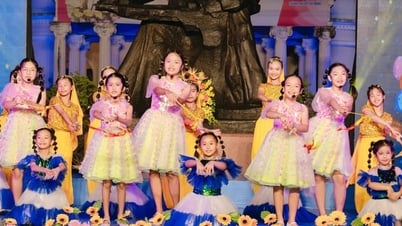












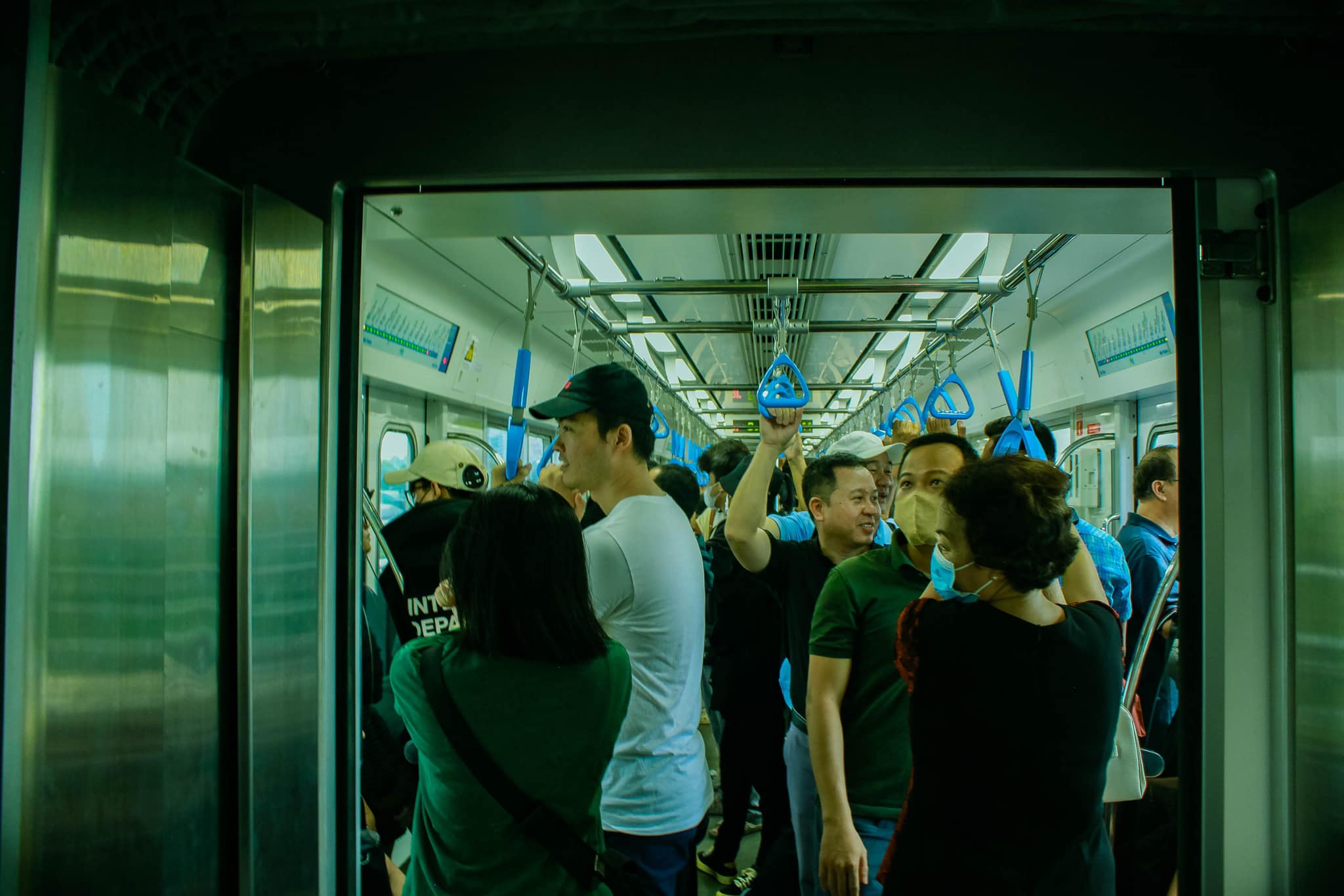



Comment (0)